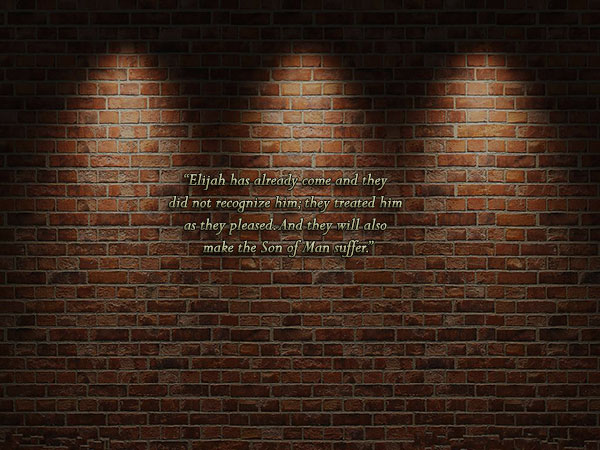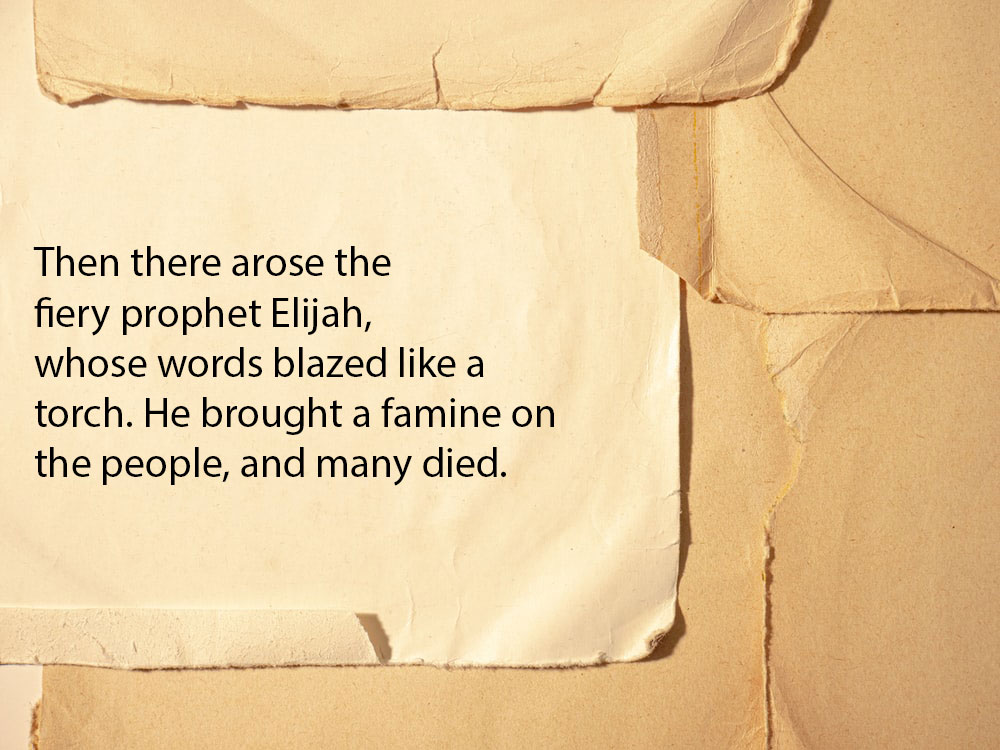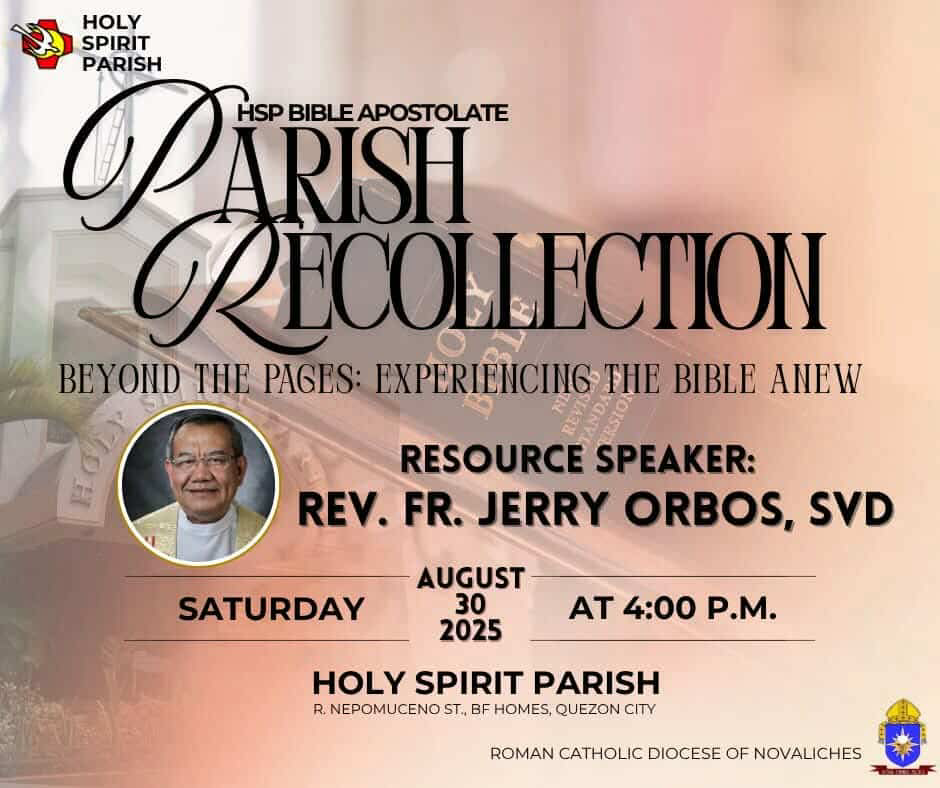
Photo Credit: Larry Miranda, CMF
(Reflections on What It Really Means to Minister to the Poor)
by Earnest L. Tan
In the early morning of one December, I chanced upon a throng of poor people waiting outside the religious institution that I was going to teach at. Many of them have heard that the institution in the previous year gave away free Christmas baskets. They had come over this time in the hope that they would be fortunate enough to be provided with some groceries for the holidays. One elderly lady told me that she was there as early as four in the morning. That impressed me as I seldom wake up that early. Not a few have also informed me that they have been zealously coming over for several days already to no avail. Yet they still eagerly anticipate that this day might be the day that the gifts would be finally distributed. A part of me was amazed at their steadfastness and determination to wait for blessings to fall on their lap. The other part of me was turned off by what I perceive to be a dependency on their part. This incident brought me to the awareness that poverty, like many other things in life, has a double-edged sword. It can be both a blessing and a curse.
As the bishops of the Philippines have declared last 2015 as the Year of the Poor, I thought it would be helpful to examine what poverty means first to us and what role it plays out in our lives. I would like to share my reflections as to the ways that poverty can be both a blessing and a curse. My hope is for us to be aware of the implications these have on ministering to the poor. The goal is to eventually become even more effective as we embark on caring for the poor. Pope Francis has repeatedly reminded us to “go to the peripheries” and bring mercy and compassion to those who are excluded and marginalized in our society. But he also warned about the kind of compassion that we offer. It could be a “worldly” one where we are merely content with giving alms and handouts and feel good that we have done our share as we pass them by. Allow me then to share some of my thoughts with you on this matter.
POVERTY AS BLESSING
There are a couple of things that poverty teaches us. First, we learn from poverty what is truly essential in life. Second, we realize that it is in poverty that we can dispose ourselves to totally surrender to God and others. Third, we also learn from poverty to draw on resources in order to survive and thrive.
Poverty helps us see what is essential in life. Some of the happiest people whom I have met are poor. Some of the saddest people whom I know of are surprisingly rich. This only reinforces the truth that money can never buy us happiness. At most, it can offer us luxury and comfort.
Today’s media sends us subliminal messages of what will comprise a good life. We are fed with illusions that once we possess a car, own a luxurious condominium, acquire many credit cards, purchase the latest in computers and technology, among others, we will be truly happy. This however only succeeds in trapping us into consumerism and materialism. We end up becoming slaves to money. This further fuels our greed as we become insatiable in our quest to possess more things to fill our lives. Marshall Macluhan, the media expert, warns us: “All media exist to invest our lives with artificial perceptions and arbitrary values.”
In poverty, we come to realize that it is not in “having” but in “being” that we experience a meaningful existence. Happiness does not result from acquiring possessions and things. Rather it stems from people being present and available to each other, enjoying laughter and togetherness and the experience of loving and being loved. These are the things that the poor certainly can afford. Antoine de Saint-Exupery, the author of the classic, The Little Prince, is often quoted for this famous line: “It is only with the heart that one can see rightly. What is essential is invisible to the eye!” Victims of calamities often validate this. When they have lost everything except their loved ones, they surprisingly managed to celebrate: “We are thankful that we are still together as a family.”
Poverty teaches us to resign and surrender. In an interview with Pope Francis on his way back to Rome, he was asked what impressed him the most about the Filipinos. The word that came to his mind was resignation. He was quick to qualify that the term is often thought of as negative and derogatory. But to him, it was an exemplary quality. He saw in us perhaps the ability to trust and surrender to God for everything. This is akin to St. Paul when he struggled with his own weaknesses and suffered from his own poverty of spirit. He ultimately had no one to turn to but God. Thus he proclaims: “In Him who is the source of my strength, I have strength for everything!” In our poverty, we have no one except God to turn to and depend on. It is also in poverty that we become genuinely predisposed and open to receive. We can truly say “Bahala na!” which really means “si Bathala na ang bahala sa akin! (I will allow God to take care of me so I will let go and I let God!)”
Early in my career, I taught in schools for privileged kids. I noticed that they never seem to appreciate whatever programs or services that we offered them. They think that they know everything already. When I moved to a poorer school, everything that I shared with them in contrast was received with much joy and graciousness. There I realized that when one is so full of themselves, they will never gain anything. It is only those who admit to ignorance that learning begins.
The symbolic gesture of the poor is an open hand. They are much like the Buddhist monks who go out each morning with an empty bowl. They are open to receive whatever will be given to them as their meal for the day. Everything is deemed as a blessing.
Poverty draws out our inner resources in order to survive and thrive. When our family experienced bankruptcy during my adolescent years, we went through hardships. Little did I know then that it was actually a blessing in disguise. On hindsight, I realized now that the experience of poverty drew out two important values in me. The first is to live simply. The second is to be creative.
Prior to our loss, I was quite pampered. I could buy any toy that I liked. Perhaps without this experience, I would be acting like one entitled kid today who demands that I get everything that I want. (I must admit that a part of me still has that child who easily gets frustrated when he does not get what he wished for.) With poverty however I have learned to detach myself from things. I still enjoy good food, nice clothes and material things. But I am not attached or beholden to them. The disposition I have is if there are blessings given to me, I will enjoy them. If there are none, I will manage to survive and be happy.
At the same time, poverty taught me to find alternatives. As a child, whenever I envied my cousins for having new toys, I would brainstorm ways to buy one. Looking back, I actually started the idea of ukay-ukay for toys. I would sell my old ones in order to buy new ones. When I no longer have toys left, I would copy pictures from coloring books, paint, cut and display them. Then I go to my cousins to inform them that I have a museum of cartoon characters. If they wanted to take a peep, they would have to pay me twenty-five centavos (at that time a good sum) first. To this day, I have tapped my creative potentials each time I am tight with money. When one nun asked me what inspires me to write, my reply is simple, “poverty!”
POVERTY AS CURSE
There is a tendency when we look at its blessings to romanticize poverty. It is good to be aware that poverty also has its ugly side. First, poverty can rob us of our dignity and worth and deprive us of many opportunities. Second, it can make us feel entitled to be taken care of and we end up becoming dependent on others. Third, it can render us powerless and stuck.
Poverty is un-dignifying. I remembered our principal before in the Adult Education Program repeatedly telling us: “When you are poor in this country, you are really poor in many aspects of life.” In a society that is hierarchical in structure, the poor is perceived as belonging to the bottom part of the pyramid. They are thus looked down upon and treated shabbily. They are deprived of education and employment. They are even judged as lazy and labelled as bums even before we really get to know them. Try experimenting to enter a mall in shabby clothes. No security guard will greet you. But dressed in fine clothes, the guard will automatically say, “Enjoy your shopping, sir!” Even the driver who brought me to the institution where the poor were gathered was afraid to leave me alone with them. He was assuming that they will do me harm.
The poor therefore looks at themselves in the way that the society looks at them. They often feel like third class citizens. They allow themselves sadly to be defined that way. One time, I was going to take a tricycle. The guy who was already sitting inside saw me. He automatically came out to offer his seat to me. Early on, he has already classified himself as to where he belongs in the strata of society. My friend was appalled at how some government officials used the poor to gain leverage. They would donate fishing boats that were of poor quality. And they would be more interested for photo opportunities. When the fisher folks were asked why they did not complain about the quality, they would reply: “Who are we to complain? We should be contented that we were given these.”
We are all made in God’s image and likeness. We all have dignity and worth. Seeing however the poor lying in the streets and children eating rice soaked in water, we wonder if this is how God intended us to be. Each time I visit a slum where large families are cramped in a small, dark and dingy place, I wonder what kind of society we have to allow people to live in such conditions. This is in contrast to those of us who build large mansions where most rooms remain empty and unused. How can we sleep peacefully at night knowing that our fellow brethren are deprived?
Poverty becomes a form of entitlement. As the poor sees themselves as pitiful, they unconsciously make their condition a form of entitlement where others are expected and obliged to give to them what they need. They soon become mendicants. When I shared with the religious my encounter with the poor outside the institution, one of them disclosed to me that their congregation has actually provided jobs for some of them. But they noticed that they do not persist in their work. They eventually prefer to go back to the streets.
I can never forget the late Fr. Ben Villote. He was the director of the Center for Migrant Youth. His ministry was one of healing young people lost and abused in the streets. He always managed to remind those under his care that though they are poor, they still have the capacity to give to those who are less fortunate than them. Every Christmas, as they are blessed with donations, they also go out to share these with others. This is why I appreciate some people to whom I have been generous with. Even in their small way, they try to give back to me. No one is therefore so poor that they cannot have something also to share in return.
The reality of dependency is quite prevalent in our society. It is sad to see parents who are poor who expect their children to take care of them when in fact it should be their responsibility. They always use the idea of “utang na loob” (a sense of indebtedness) as their weapon to manipulate children to provide for the family: “Because I brought you into this world, you owe it to me to take care of us.” This has succeeded in burdening many children even at an early age. They eventually go out to the streets to sell themselves in order to fulfil their obligations to their entitled parents. This is precisely why the young girl, Gyzelle, at UST bursts out in tears before the Pope and questioned: “Why do children suffer so much?”
Poverty renders one powerless and stuck. Some of the poor tend to attribute their poverty condition as their fate. They come to believe that they were born this way and that they will die this way. They merely contend themselves with drama. “Oh, woe is me? Poor me!” Each time I visited Aling Lydia, she recounts to me a litany of her woes. It always ends with a sense of self-pity. The questions that always remain with me after my visit is: what has she been doing about her condition? What am I doing to help her? Am I not encouraging her self-pity by entertaining her drama? This is why I always caution people about pity. It is not the same as love. When you love someone, you naturally commiserate with them. But at the same time, you challenge them to get out of their rut. With pity, we unconsciously reinforce their dramas and feed their dependencies. Thus they remain in the same state forever.
The language of powerless people is always “I can’t!” It helps to challenge them to make this distinction: Is it really a fact that you cannot or is it more of your not wanting to try? In truth, we all can do something if we want to. Change is always possible to those who desire it. To those who do not wish to change, there will always be excuses.
One of the things that I always remind my students in Adult Education is: poverty is a condition. As such, it can be changed. They do not have to be stuck with this condition the rest of their lives. But I also encourage them to realize that this is their sole responsibility. Nobody can save them but themselves. The song that I usually teach them is Basil Valdez’s Hawak Mo Ang Panahon. The lines in the song that often spoke to them are:
Ang hinahanap nating lugar sa mundong ito
Ang bukas na kay layo ay ating matatamo
Ang lahat ng ito at higit pa ay mapapasaiyo
Hawak mo ang panahon sa kamay mo
MINISTERING TO THE POOR
Let us heed the invitation of Pope Francis to show mercy and compassion to the poor. Let us minister to the poor and marginalized. But let us be wary of certain things. We should not think ourselves as messiahs. The following are some points to consider for this endeavour we will undertake:
- Be A Beggar. Pope Francis reminds us: “How many young people among you are like this? You know how to give and yet you have never learned how to receive. You still lack one thing. Become a beggar. This is what you still lack. Learn how to beg. This isn’t easy to understand. To learn how to beg. To learn how to receive with humility. To learn to be evangelized by the poor, by those we help, the sick, orphans, they have so much to give us. Have I learned how to beg? Or am I self-sufficient? Do I think I need nothing? Do you know you too are poor? Do you know your own poverty and your need to receive? Do you let yourselves be evangelized by those you serve? This is what helps you mature in your commitment to give to others. Learn how to open your hand from your very own poverty.” These words from the pope caution us from the attitude of condescension. A common mistake is for people who help the poor to act high and mighty towards the poor like they are inferiors that we feel obligated to patronize and act kindly to. Remember there is no such thing as a ministry that is one way. As much as we minister to the poor, they are also ministering to us. Be open then to what the poor can teach us. We can learn from their simplicity. We can adopt their deep faith and their capacity to surrender and trust God totally. We can witness to their resiliency.
- Go Unprepared. Another common mistake is to enter the world of the poor with our pre-conceived notions of what they need. We come in with pre-determined programs and services without knowing them first and what they really need or aspire for. This is how many government projects have failed. The bureaucrat plans aid packages from their air-conditioned offices with what they believe is best for the poor. Despite their good intentions, they are however ignorant of the real conditions of the poor. Take time to immerse with them and listen to their stories. Get to know their hopes and dreams. Understand how the world looks from their eyes. Only then can we work out a plan together with them.
- Be One With Them. So long as the poor sees us as different from them, we will always be an outsider looking in. We will never be able to enter their world. This is why Pope Francis talks about leading austere and simple lifestyles. This is in order for us to be closer to them instead of alienating them from us. EDSA 3 was very revealing. The poor sided more with the impeached president than the Church leaders. One religious sister painfully recounted how a destitute woman during that time looked at her with pure disdain and accused her: “Hipocrito!” This is because the Church was perceived by the poor to be associated more with the rich than with them. In my own immersion with farmers years ago, I myself found great difficulty to be considered as one of them. They kept looking at the color of my skin. “You are Chinese, you are not one of us!” They repeatedly remind me. It was only when they heard my story of bankruptcy and poverty that they took me in their arms and treated me as one of them. This is again the reason why Pope Francis reminds us of our being in touch with our own poverty. Some of us may not be poor materially, but we each have our own kind of poverty to deal with.
- Empower Them. Restore their dignity and worth by constantly believing in their own abilities and potentials to lift themselves up from their condition. We can offer them some resources and skills to assist them. But they will have to recognize that they are the ones who will ultimately be responsible to change their fate. Thus, we accord them voices to express what they really need and aspire for. We let them take charge. I wonder for instance if the DSWD program for street children is what the kids really needed. Government had spent millions to bring them to a luxurious resort hotel to enjoy for a few days. But they go back eventually to reality. I wonder what their response will be if they had been asked instead how they believe the money should be spent on them. In the end, we go back to our comfortable beds and homes. The poor will have to deal with their lot.
- Journey with Their Salvation History. All of us have our individual faith journey and our own experience of redemption and liberation. Maybe our desire to minister to the poor is also part of our experience of salvation. Our involvement with them gives our lives purpose as we see a deeper meaning of our existence. Beyond material things, we recognize the joy and fulfillment that stems from caring and compassion. In ministering to the poor, we also join them in their faith journey and we witness to how they allow God to see through their sufferings and trials that come with day to day living. Together we celebrate their triumphs. We also commiserate with their downfalls. But always we trust that our stories are never the end. We continue to strive to evolve each day to have better lives. For Jesus said: “I have come to give you life, life to the full!”
Looking over these five considerations in ministering to the poor, it seems much easier to follow what Pope Francis terms as the “worldly compassion” where we just resort to offering charity that is convenient to us. We rid our closets of excess clothes and possessions. We hand out our loose change to beggars and street children. We donate excess incomes to institutions. But to truly have compassion, we need to reach out not only to give but also to learn as well. We journey with the poor as they journey with us. Together we strive to restore and re-create this world back to its original blessing as God had intended—that we are all made in the image and likeness of God and that we all live in paradise.
A friend of mine always has a soft heart for street children. Every time she sees one, she gives him or her some coins. Soon, we noticed that she was swarmed by the rest of them. At that time I commented to her that there must be a better way to help these children. A few years later, I heard that she has opted to join a religious congregation. Today she is a missionary in another country helping the poor and marginalized. I am not concluding this article by saying that we all have to choose a consecrated life like my friend. (It would be wonderful though if some of you would be touched by love to follow suit. This is after all also the Year of Consecrate Life for the Universal Church.) But we all can certainly offer our lives in whatever way we can to help uplift the poor and downtrodden. May this article enlighten you then as you consider seriously taking on this endeavour. By doing so, let us make Pope Francis even prouder of us as we join in his mission to offer mercy and compassion to the poor.
Earnest L. Tan is a licensed Guidance Counselor and Formation Professional. He is also a freelance facilitator who conducts various workshop-seminar that are psycho-spiritual in nature. He is the author of Why I Love Pope Francis, Pope Francis Close to Our Hearts and Your Greatest Gift for Your Greatest Love and a contributor of filcatholic.org.











